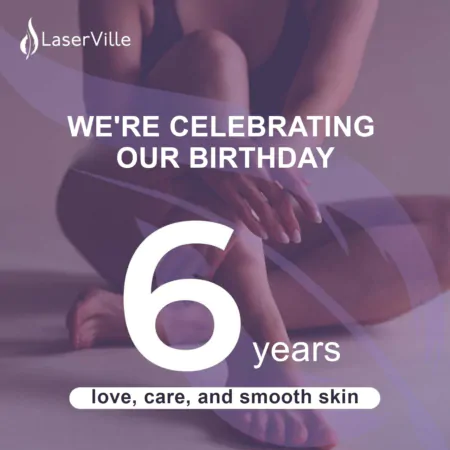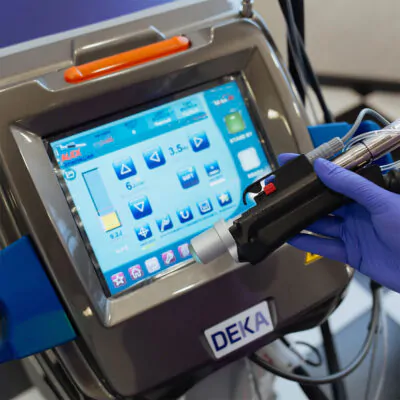Oncologists on laser hair removal: can the procedure cause cancer?
Contents
- 🔎 Why is there a myth that laser hair removal causes cancer?
- 🔎 How does the laser beam work?
- 🔎 Contraindications and skin reactions to laser hair removal: oncologists’ opinions
- 🔎 Laser hair removal and cancer: procedure safety
- 🔎 What are the possible skin reactions to laser hair removal?
- 🔎 Laser hair removal: oncologist’s opinion
- 🔎 Cancer and laser hair removal: summary
Although laser hair removal has been popular for many years among both women and men, there are still numerous myths surrounding the method. Despite what oncologists say about laser hair removal, one of the most common misconceptions is its alleged carcinogenicity. In today’s article, we will debunk this prejudice and answer the most popular questions about whether laser hair removal causes cancer.
| Question or Issue | Answer or Information |
| What is laser hair removal? | Laser hair removal is a method of removing hair using laser light, which destroys hair follicles. |
| How does laser hair removal work? | The laser emits light that is absorbed by melanin in the hair, turning into heat and destroying the hair follicles. |
| Can laser procedures cause skin cancer? | There is no scientific evidence linking laser hair removal to the development of skin cancer. |
| Is laser hair removal safe? | Yes, when performed correctly by a qualified specialist, laser hair removal is absolutely safe. |
| What contraindications exist for laser hair removal? | Main contraindications include skin, autoimmune, and oncological diseases, infections, keloids, certain medications, recent tanning, and gray hair. |
| How should I care for my skin after the procedure? | It is necessary to avoid intense sunlight, tanning beds, high temperatures, alcohol-based cosmetics, and skin friction for 2-3 days. Additionally, keep the skin moisturized and use pantheon to reduce redness. |
Why is there a myth that laser hair removal causes cancer?
There is a belief that laser hair removal causes skin cancer. Of course, this is not true. This misconception may arise because laser hair removal is contraindicated in oncology. The laser beam cannot cause healthy cells to mutate and divide uncontrollably. Therefore, it can be confidently asserted that laser hair removal and breast cancer have nothing in common.
So why can’t laser hair removal be done in oncology? People diagnosed with cancer cannot undergo this procedure, as with most other aesthetic medicine services. One reason is that patients undergoing cancer treatment have particularly sensitive skin that is prone to changes.
Modern scientific research and oncologists confirm that laser hair removal does not cause cancer. On the contrary, lasers are increasingly used to treat various diseases. Therefore, it is important to emphasize that hair removal using laser equipment is a safe procedure for healthy individuals. It does not pose a risk to clients who have no contraindications to this hair removal method.

How does the laser beam work?
Laser beams are fundamentally similar to sunlight. This is why many specialists smile at the question, “Can laser hair removal cause cancer?” We receive a much larger dose of similar rays from the sun every day.
During laser hair removal, the laser beam is directed at the prepped area of the skin, where it is absorbed by melanin—the natural pigment in hair roots. The light is converted into heat, which destroys the structure of the hair follicle, causing it to die.
Thus, laser radiation removes unwanted hair by destroying it. The beam does not affect the skin or internal organs, as its depth reaches a maximum of 4 mm.
Therefore, a properly performed procedure cannot have a negative impact on the body, and there is no reason to worry about whether laser hair removal causes cancer.
Contraindications and skin reactions to laser hair removal: oncologists’ opinions
Instead of unreasonably questioning whether laser hair removal can cause cancer, it is worth focusing on real risks and following specialist recommendations. There are various contraindications to laser hair removal, such as not tanning, using self-tanners, or tanning lotions from a few days to two weeks before and after the procedure (depending on the type of laser equipment). Additionally, one should avoid psychotropic medications, retinoids, steroids, and antibiotics. Exfoliating procedures and peels should also be avoided.

After the procedure, the skin may be slightly red, so proper care is needed. Alcohol-containing cosmetics should not be used. The skin should be protected from sunlight using creams with UV filters (SPF).
Although the procedure itself is not carcinogenic, cancer is a contraindication for laser hair removal—oncologists are clear on this point. Other common contraindications include:
- skin infections;
- excessive and recent tanning;
- pregnancy;
- lactation;
- damaged epidermis;
- epilepsy;
- use of psychotropic drugs;
- retinoid therapy;
- use of blood-thinning medications;
- psoriasis;
- diabetes mellitus.
If you do not have the listed contraindications, you can book a laser hair removal appointment right now!
Laser hair removal and cancer: procedure safety
Laser hair removal and cancer are not related. There has not been a single documented case where laser hair removal has led to serious consequences such as cancer. Hair removal by laser is completely safe for the skin if both the practitioner and the patient follow all instructions.
A consultation is necessary before using the laser. The specialist evaluates the condition of the skin, determines its phototype, and establishes the number of required sessions. The specialist also conducts a medical interview with the patient to rule out contraindications to the procedure.
It is important to remember that proper preparation for laser hair removal is also required from the patient. Post-procedure rules must be followed. With all recommendations adhered to, laser hair removal may sometimes even be performed in oncology remission, but this must be coordinated with an oncologist.
People who question whether laser hair removal triggers cancerous cells should also know that the Motus AX device has been properly tested and verified. Our laser has all the necessary certifications and permits confirming its safety.
What are the possible skin reactions to laser hair removal?
In the previous sections of this article, we discussed whether laser hair removal can cause cancer and why it should not be done in oncology. Let’s consider the undesirable reactions that can occur during this procedure. In rare cases, burns from laser hair removal can occur due to the incompetence of the practitioner or if the patient ignores the specialist’s recommendations. Factors that contribute to burns may include incorrect laser settings, unprotected moles, or medication that causes photosensitivity.
Additionally, if the procedure is not performed correctly, laser hair removal may lead to scarring, hyperpigmentation, and hypopigmentation. It is important to understand that these side effects are temporary and occur only if you are dealing with an incompetent specialist. This is why it is crucial that the laser hair removal technician performs the session correctly and is aware of contraindications, including those like laser hair removal in oncology. For your absolute safety, LaserVille employs only the best specialists with medical education and extensive experience.
Another reaction to laser hair removal is irritation, which can manifest as redness, swelling, itching, or burning. It is important to understand that skin irritation from the treatment is a normal reaction. Thanks to the gentle impact of the Motus AX laser using Moveo technology, irritation after laser hair removal usually lasts only a few hours. Panthenol-based products are used to relieve irritation symptoms.
Laser hair removal: oncologist’s opinion
If you are still unsure whether laser hair removal is dangerous and if it can cause cancer, you can watch a video on her YouTube channel to learn the opinion of oncologist Oksana Mashevskaya. In her video blog, the clinical oncologist briefly and clearly explains that there is no causal link between laser hair removal and cancer. In the video, she clarifies that the procedure does not use ultraviolet radiation or radiation, so it cannot cause cancer. According to the oncologist, the American FDA sometimes permits laser hair removal even in oncology remission.
Cancer and laser hair removal: summary
 In this article, we answered in detail whether laser hair removal causes cancer. Laser hair removal is not only an effective and safe method for removing unwanted hair—it also eliminates ingrown hairs, black spots, and irritation caused by shaving, sugaring, or waxing. This method offers many advantages over alternatives, and the revolutionary Moveo technology guarantees even better results and comfort.
In this article, we answered in detail whether laser hair removal causes cancer. Laser hair removal is not only an effective and safe method for removing unwanted hair—it also eliminates ingrown hairs, black spots, and irritation caused by shaving, sugaring, or waxing. This method offers many advantages over alternatives, and the revolutionary Moveo technology guarantees even better results and comfort.
Book a free consultation with our specialists and enjoy smooth skin with minimal effort!































No reviews